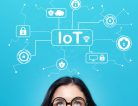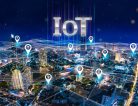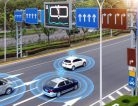Embracing next technology healthcare without adequate preparation will only open new risk avenues and threat vectors for healthcare cyber attacks. Technology is perceived as a solution to address operational inefficiencies within the healthcare industry and to expand the reach of high quality healthcare services to remote regions. But the risks are mounting.
Vulnerable Devices for Critical Medical Practices
The proliferation of smart technologies will encompass the healthcare industry in coming years. Digital devices such as smart pacemakers and insulin pumps are used widely today, and the next generation of smart technologies will cover a variety of critical cardiovascular, respiratory, and neurological medical practices. However, next technology healthcare devices aren’t immune to sophisticated attacks. In control of malicious actors, vulnerable smart medical devices can deliver the killer blow to patients instead of maintaining stable health.
Cloud Vulnerabilities for Healthcare Cyber Attacks
Cloud connectivity is critical to access patient information anywhere-anytime, a promise that’s driving transition to the cloud for healthcare institutions. PHI data is effectively stored in off-site data centers beyond the control of healthcare providers originally in charge of maintaining patient data privacy and security. Any vulnerability in their cloud networks is an open invitation for hackers to compromise sensitive patient information.
IoT Networking
Unlike cloud vendors subject to stringent compliance regulations, patients themselves are unable to secure IoT-connected medical devices at home. A malware infected dialysis machine could be part
of a DDoS attack intended to bring down the entire network infrastructure of a hospital. Since IoT devices come from multiple vendors, through different processes and offer different technologies, it’s not entirely possible to maintain a consistent standard and control around healthcare cyber attacks and IoT device security.
Next Technology Healthcare Cyber Attacks to Mobile Apps
Healthcare providers adopting telemedicine practices using smartphone health apps may not realize or control the personally identifiable information shared with third-party advertisers. These apps run on mobile platforms vulnerable to security threats, especially when the OS is not updated to apply the latest available security patches.
Considering the general lack of security awareness among patients using outdated mobile app and OS versions, and fall prey to mundane social engineering ploys, the industry has a long way to go before considering mobile apps as secure channels to offer effective firewalls and security against healthcare cyver attacks.
Do you think the next technology healthcare industry is ready to take a deep dive into cyber security adoption without adequate preparation and fixing loopholes that exist within the technology itself?
Recruiting expertise in medical devices and electronic health records
Need an executive search consultant with deep knowledge and contacts in the medical field? NextGen has identified and recruited key personnel ranging from principal / chief engineers in software development, systems design, and embedded wireless to directors and VPs in sales, business development, and technology to president of business unit for medical device manufacturers, electronic health records developers, clinical integration, and bio medical research and development.








